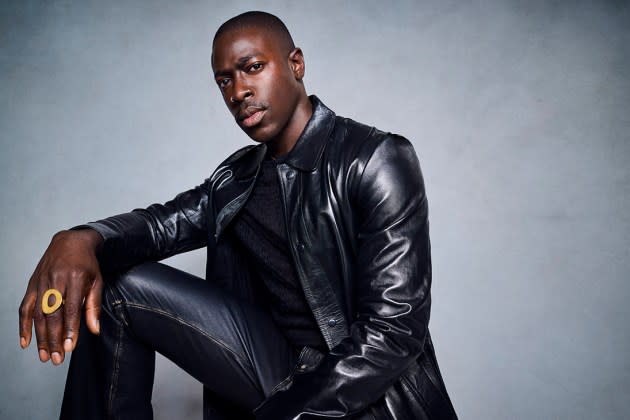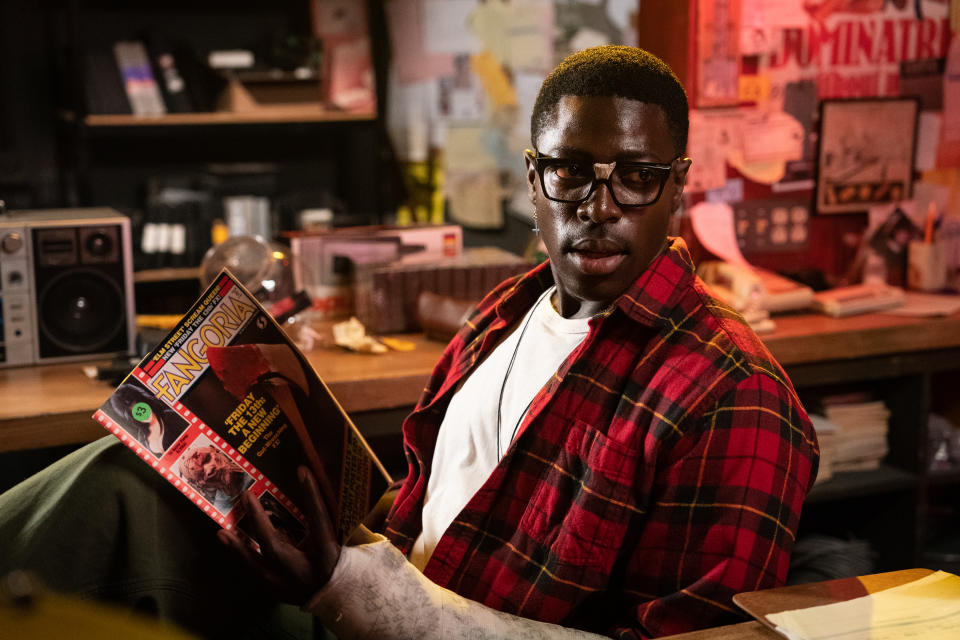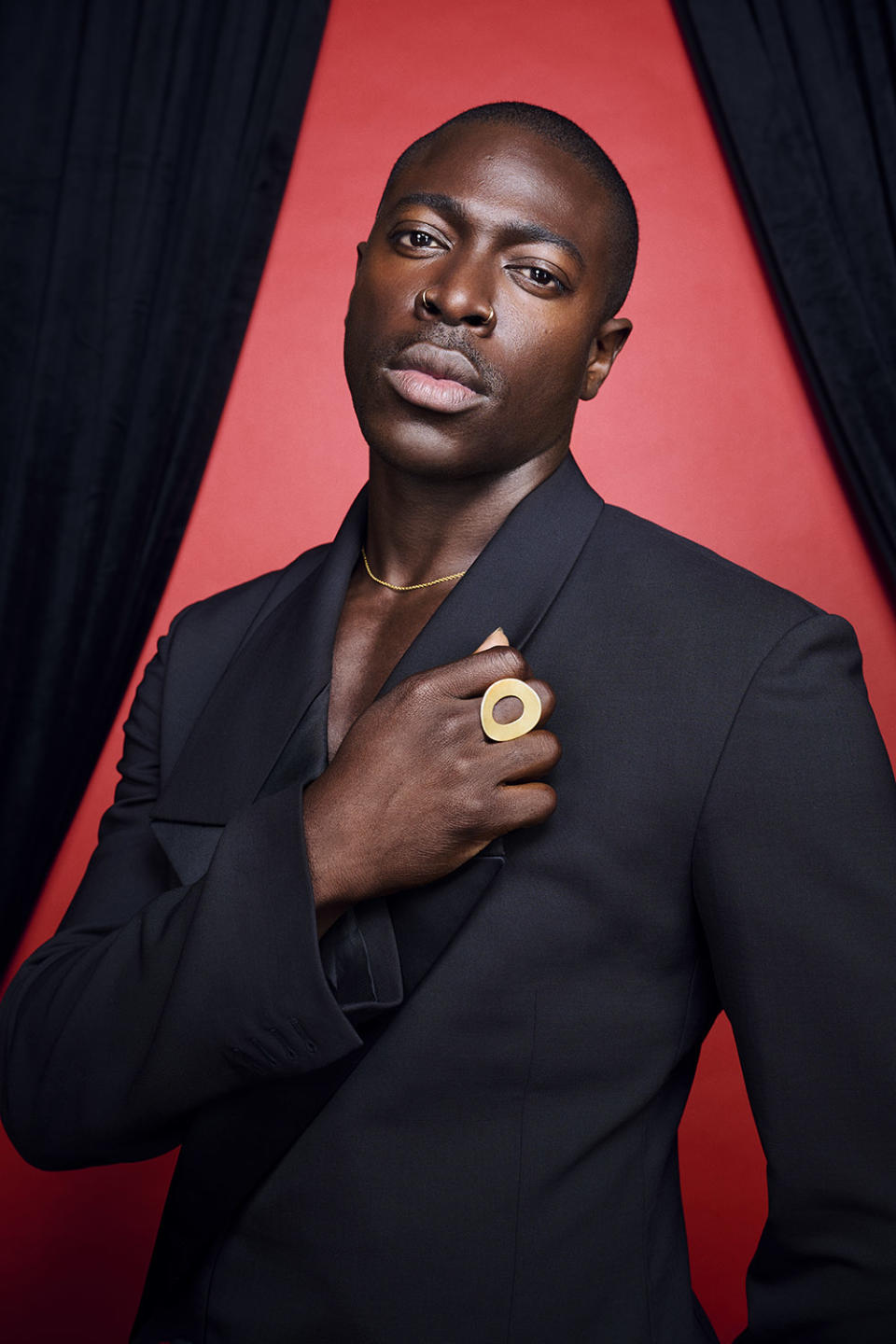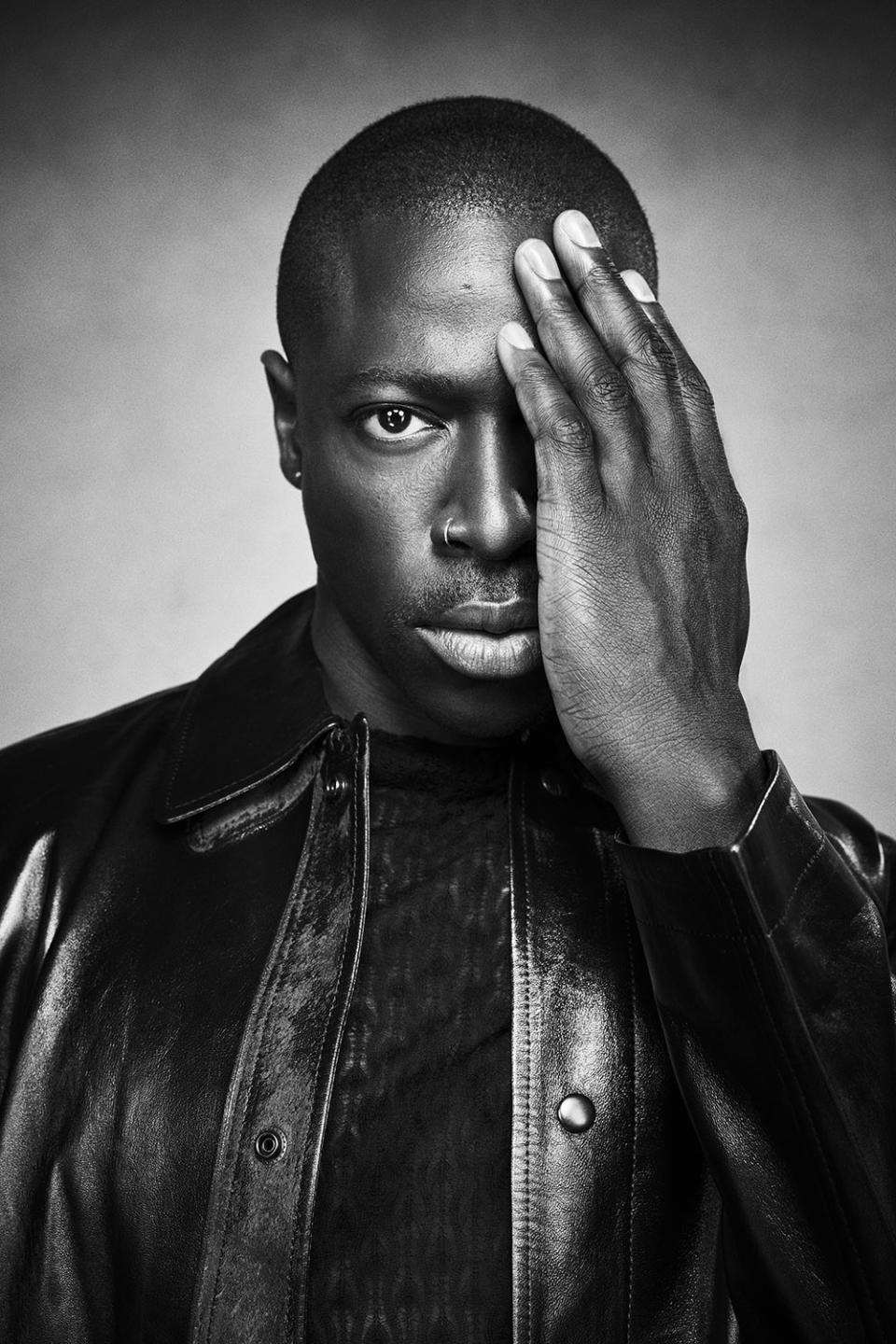How Moses Sumney Went From Music to ‘MaXXXine’: “I Wanted to Prove Myself as an Actor”

In Moses Sumney’s first film acting role, he dies onscreen. That’s not so much a spoiler as it is an inevitability; the movie is MaXXXine, the final installment of Ti West’s beloved Mia Goth-starring horror trilogy from which nobody makes it out alive.
Sumney plays Leon, a Hollywood Boulevard video store employee and the closest thing to a best friend that Goth’s Maxine Minx has ever experienced. The story, which follows Minx as she attempts to catapult her porn career into Hollywood stardom, plays out as The Night Stalker — a real-life serial killer from the 1980s — terrorizes Los Angeles and seemingly starts to hunt down Maxine’s own circle. It’s a dream role for any actor building up their career, but Sumney — who self-deprecatingly describes himself as “very indecisive,” but in actuality seems to lean more contemplative and careful — admits he hesitated at first to send in an audition tape.
More from The Hollywood Reporter
Box Office: 'Despicable Me 4' Rules July 4th With $122M Opening, 'MaXXXine' Scares Up $6.7M
'Megalopolis' Star Giancarlo Esposito Says Film "Will Change the Way Filmmakers Look at Filmmaking"
“I thought to myself, what does it mean to die on camera?” he explains over tea on the rooftop of the Edition Hotel in West Hollywood. “And do I want to join the pantheon of Black actors who do?” But after reading West’s script, Sumney found what he was looking for: a character with his own interior life, with more on offer than just propelling forward the narratives of the white characters. He also learned from his agent that they were viewing tapes from a very large number of actors, so it triggered his competitive side. Sumney went to Hot Topic, purchased a set of dangly earrings that felt fitting for Leon, and rehearsed right there in the mall parking lot. “I wanted to prove myself as an actor, and not just a singer who can book parts because he’s a ‘cool’ guy,” he says.

Sumney is successful enough as a musician that he certainly doesn’t “need” Hollywood. Since releasing his first full-length studio album, Aromanticism, in 2017, he’s become something of a poster boy for independent artists — he’s critically acclaimed, revered in all the right circles, and has toured with James Blake, Sufjan Stevens and Solange Knowles, all while eschewing the big-label system and remaining completely in charge of his creative vision (including directing several of his own music videos).
He grew up first in the Inland Empire just outside Los Angeles and then in Ghana; he eventually returned to Southern California and studied creative writing at UCLA. He then decamped for Asheville, North Carolina, a place that offered creatively greener pastures and a respite from the self-described “evils” of Los Angeles, to which he feels particularly susceptible. (He’s recently started splitting his time between Asheville and New York City, for its access to an international airport and larger dating pool.)
He spent much of his childhood dreaming about becoming a novelist (“I would write little superhero books,” he says) but became laser-focused on songwriting during college. Time on set of his own music videos sparked his interest in television and film, and when Euphoria creator Sam Levinson sampled his single “Me in 20 Years” for one of the show’s special episodes, Sumney left a lasting impression. Enough so that Levinson cast him in The Idol, the controversial HBO limited series about the exploitation of a pop star, as aspiring musician Izaak.
Like MaXXXine, it was an A24 project with a cast full of cool kids (Lily-Rose Depp, Rachel Sennott and Troye Sivan, to name a few). Sumney says that despite a relatively high budget, the production — which underwent an extensive reshoot — felt nearly as indie as MaXXXine: “When I joined it was the second time shooting, so we were shooting at [The Weeknd’s] house for a reason.” He also felt a spirit of doing something wild, free and taboo — a feeling that repeated itself once he arrived to the set of MaXXXine. “Especially for me, because I come from a very Christian upbringing, all of it felt boundary-pushing,” he says. “I’m wearing jean shorts and it’s like, whoa, we’re feeling crazy today. But of course it was also the pornography, the death, the blood, the language. Need I say more?”

When The Idol premiered in the summer of 2023, backlash flooded the Internet — viewers and pundits felt scandalized by its provocative display of sexuality. Sumney says he understands the discomfort with the way women (and their bodies) were portrayed, and that he’s constantly surprised by the absence of incisive cultural discourse about sex. “I objectify myself also, and it has affected my career positively, but where’s the conversation around the fact that all our pop stars are sex symbols?” he says, offering a comparison to MaXXXine’s storyline about the backlash to the porn industry. “We’ve decided that if you have agency, good for you, and if you don’t have agency it’s a crime. But what about when people feel like they had to do something in order to get ahead? I’d love to see people contend with that idea, in between the LOLs and the scares, when they watch.”
Now that his big-screen debut is out in the world, Sumney is looking at what’s next. He has hopes of becoming a filmmaker in his own right and is working on sharing that desire unabashedly. He’s not new to fame, but the particulars of the film and television business, viewed from the inside for the first time, have been a bit shocking. “There’s a lot of smoke and mirrors, and in order to do this you have to have some delusion,” he says with a laugh. “I’ve always wondered why my actor friends are so crazy, and now I get it.”

He has screenplays in the works, and says that watching MaXXXine director Ti West — as well as feeling his support during filming — is part of what inspires him to dream of making one into a feature film. He also sees it as a way to be proactive about the lack of available acting roles. “The opportunity for a Black man — wow. Each minoritized identity that you add on, it becomes even more narrow,” he says. “And I already have a job! So I don’t need to do any of it. There are things I’ve turned down, that people will never know about, that feel soulless to me. Money, eyeballs or clout will be attached to something that does not feel enriching.”
His intuition tells him that, in the end, the best way to feed his spirit will be with an opportunity he’s created for himself. And if we’ve learned anything, it’s that Moses Sumney’s intuition is worth listening to.
Best of The Hollywood Reporter
